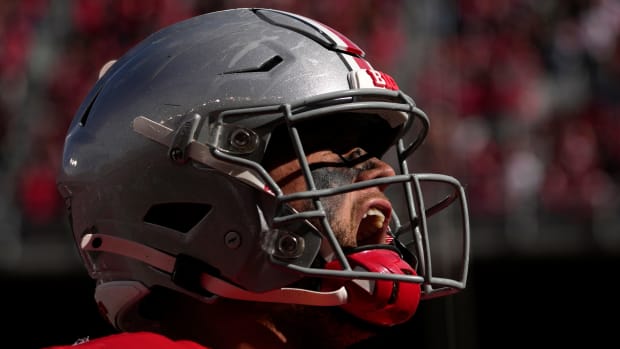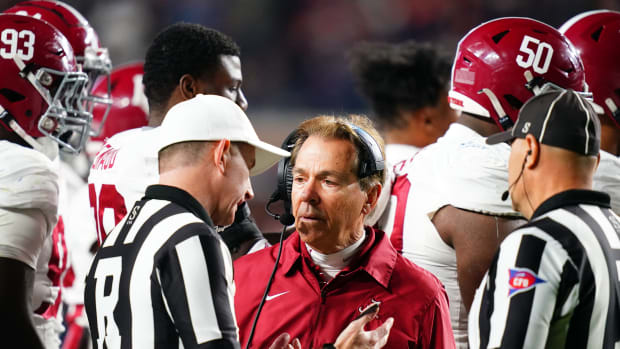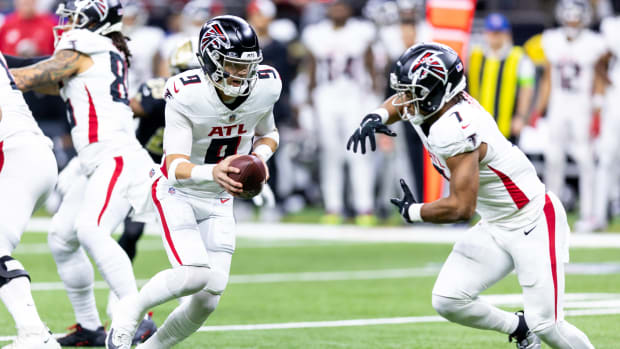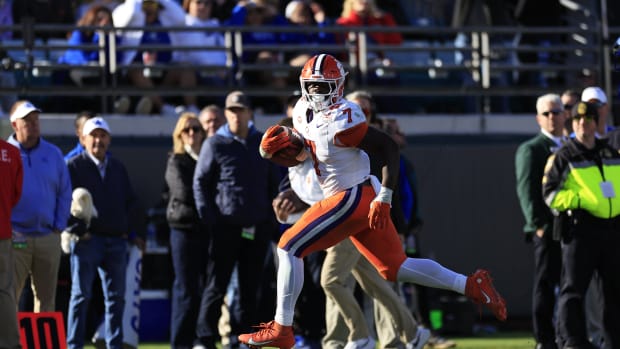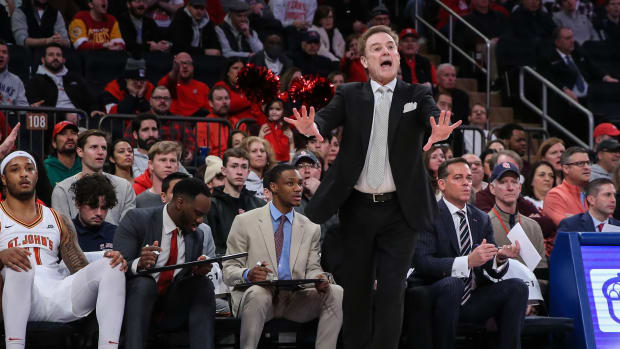
Iowa NIL Collective Receives Donation From Local Casino
The University of Iowa's NIL collective, Swarm, announced a substantial donation from gaming enterprise Elite Casino Resorts. The company operates five casinos, including three in Iowa: one fifteen minutes south of the Iowa City campus and another an hour east in Davenport, Iowa. Elite Casino Resort’s offerings include sports gambling, both mobile gaming and in-person wagering at their brick-and-mortar locations.
Notably, this donation comes months after a gambling investigation led fifteen student-athletes at Iowa and Iowa State to be charged with underage gambling, and many others subject to NCAA suspensions – most notably, Iowa’s star defensive lineman Noah Shannon, who was suspended for an entire season.
This week, Swarm announced that Elite Casino Resorts donated $500,000 to the collective, a massive injection of capital for a football program that is likely looking to revitalize its offense through the transfer portal after the firing of offensive coordinator Brian Ferentz.
While Iowa fans rejoice at the potential benefits such a large donation may be able to generate on the playing field, more significant questions loom over the entanglement of a gaming company in NIL affairs. Specifically, a gaming company that offers sports gambling.
About a month ago, I analyzed how alcohol distributors have used NIL collectives as a loophole to gain entry into name, image, and likeness marketing. In most jurisdictions, NIL legislation precludes companies in morally scrupulous industries from striking endorsement deals with student-athletes.
In that discussion, I outlined that an industry like alcohol becoming involved in collegiate athletic marketing is relatively innocuous. Alcohol is fundamentally enmeshed in collegiate athletics – 80% of Power Five institutions offer alcohol during home games. However, this loophole is not only accessible to alcohol distributors but also to every morally scrupulous industry. Allowing this behavior is a dangerous precedent to set as other industries like sports gambling could use this loophole to gain footing in NIL, an industry that, as a matter of public policy concern, legislators had tried to keep sports gambling entities out of.
Most people say, “I don’t want to say I told you so”; I am not one of those people: I told you so.
For transparency, Iowa NIL legislation is in the minority of states with no restrictions on athlete endorsements from companies involved in morally scrupulous industries. Nothing restricts student-athletes playing for teams in Iowa from signing deals with companies involved in tobacco, firearms, gambling, alcohol, etc.
Nonetheless, the template has been created. States like Pennsylvania that have casinos and mobile sports wagering already in place may face similar interactions between gaming companies and NIL collectives; skirting around Pennsylvania state law that intends to remove these industries from the NIL economy:
Pennsylvania NIL Law § 3706 (d):
Prohibition.--A college student athlete may not earn compensation as a result of the use of the college student athlete's name, image or likeness in connection with a person, company or organization related to or associated with the development, production, distribution, wholesaling or retailing of any of the following:
(1) Adult entertainment products and services.
(2) Alcohol products.
(3) Casinos and gambling, including sports betting, the lottery and betting in connection with video games, online games and mobile devices.
(4) Tobacco and electronic smoking products and devices.
(5) Prescription pharmaceuticals.
(6) A controlled dangerous substance.
While no statutory regulations exist in Iowa, the questionable ethics of this donation still loom. The American Gaming Association (AGA), the premier trade organization of the gambling industry, has standards regarding ethical advertising strategies. The AGA’s Responsible Marketing Code includes “Sportsbooks should not enter name, image, and likeness (NIL) endorsements or partnerships with amateur athletes.”
While not directly engaging in any endorsement deal with an athlete, it is undeniable that this effort by Elite Casino Resorts is not purely philanthropic. Utilizing a partnership with the Swarm NIL collective, an entity fundamentally tied to Iowa student-athletes, a public donation aims to leverage the goodwill of Iowa athletics and those players on the field to attract customers to their casinos and mobile sports book. While there is no endorsement, Elite Casino Resorts has plenty of marketing advantages to this donation.
The merging of NIL and sports gambling, two relatively new industries in the U.S., presents a novel challenge for regulators. Mobile sports wagering has impacted college students at a disproportionate rate: according to a meta-analysis from the University of Buffalo, one in ten college students is now a pathological gambler. Due to the ease of access and proximity to athletics for college students, mobile sports wagering has become the preferred gambling method.
Is it correct that companies involved in mobile sports wagering can intertwine themselves so closely with athletics? Regulators must ask themselves this question; hopefully, without the influence of lobbyists.


